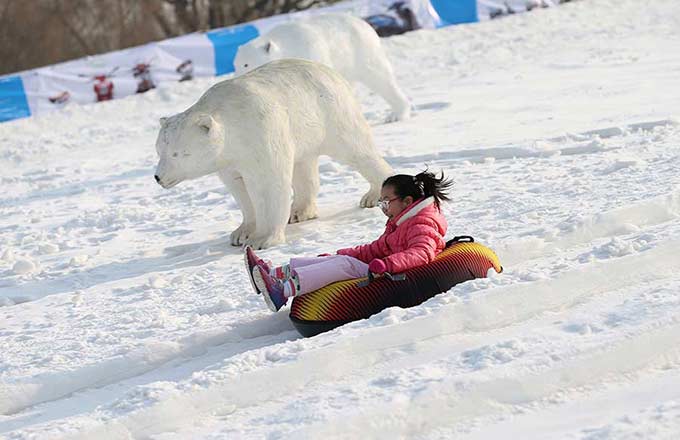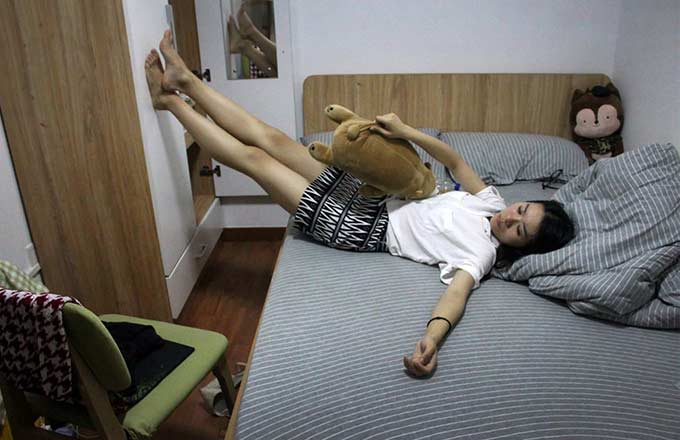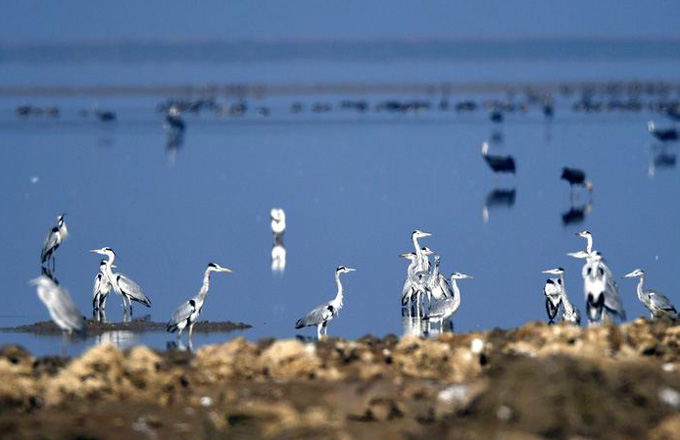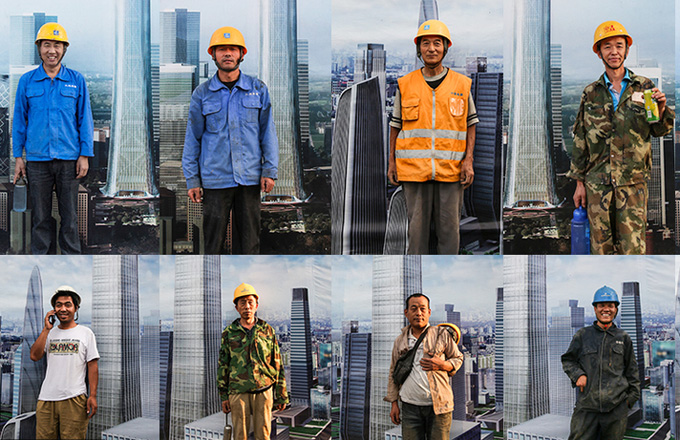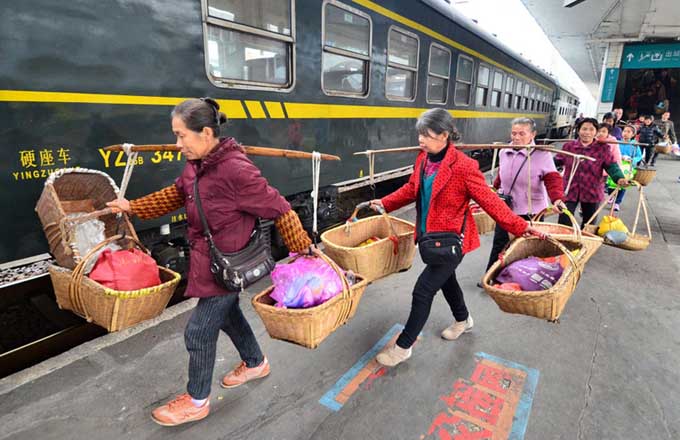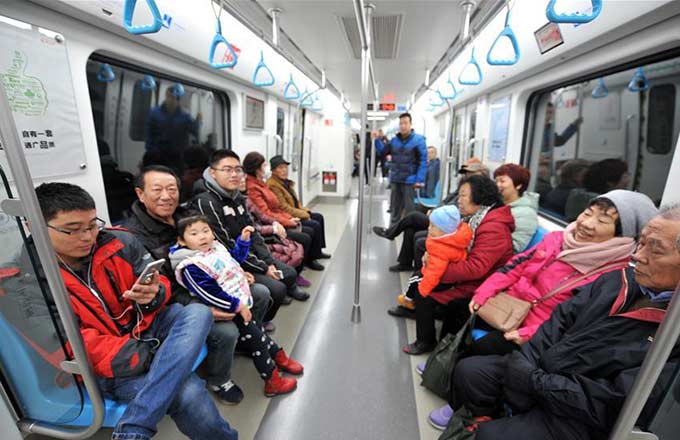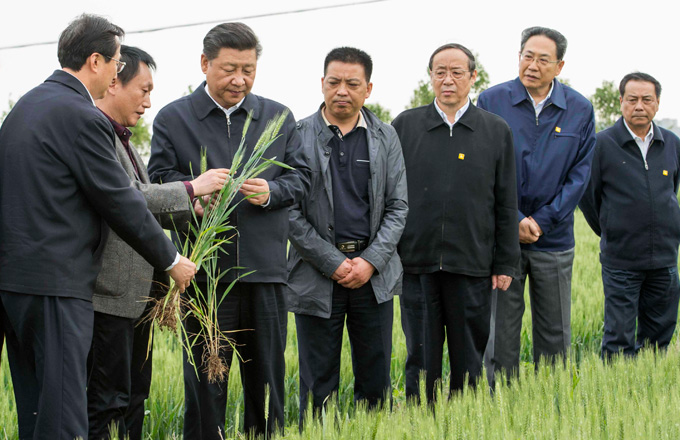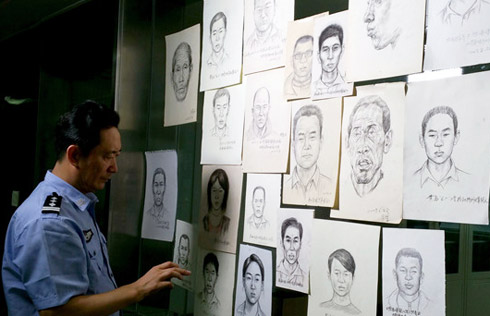Hoof care a dying trade in North China
Wang Liangzhen begins by tying a knot around the mule's neck and binding its four legs with a rope, clamping its upper lip with a pair of pliers. Then he starts to work on its feet. Wang is a farrier - a pedicurist, of sorts, whose clients are horses, mules, donkeys and sheep.
Every three days, the people of Wuzhai county in North China's Shanxi province gather at the local bazaar to trade livestock.
Wang waits there for any animals whose feet could use some prettying up.
He is the only person in the area skilled in hoof care.
Seizing a mule's hoof and putting it on a wooden bench, Wang finishes trimming it within a minute, earning 10 yuan ($1.45) per foot.
"After trimming, my mule's hoofs can firmly grip the ground to avoid slipping and falling while working on the farm," said a man surnamed Li, who was waiting for Wang to attend to his mule's feet.
Wang learned his trade in the 1980s, when mules and horses were still widely used in agricultural transportation and farm work in China.
Before the busy season each year, farmers from outside Wuzhai county come to Wang so he can treat the hoofs of their livestock.
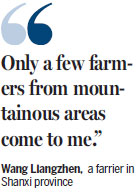
"This job requires good arm strength. You should be stable, accurate and agile when trimming the hoofs. Otherwise, you cannot cut well and the livestock will suffer," he said.
Wang's animal expertise extends beyond their feet. After 30 years of working with livestock, he is generous in dispensing tips.
"Adult mules and donkeys are unwilling to do farm work before they are tamed. It is best to tame mules and donkeys with few people standing around and staring at them, or they will be frightened and it will be harder to tame them," he said. "You need to follow their temperament and get them adapted to farm work."
He gives his customers free advice on choosing a good mule or donkey at the bazaar, as he said he can tell the age and condition of livestock just by looking at their teeth.
But the farrier's trade is a dying one.
Fewer animals are used on farms across China as a result of improved agricultural machinery.
Not many young people are eager to learn the trade due to the low income, which ranges from 20,000 ($2,900) to 30,000 yuan per year.
Wang is the only farrier in eight counties across western Shanxi, including Wuzhai. "Only a few farmers from mountainous areas come to me. Large machines cannot be used there, so the land is plowed by donkeys and mules," he said.


